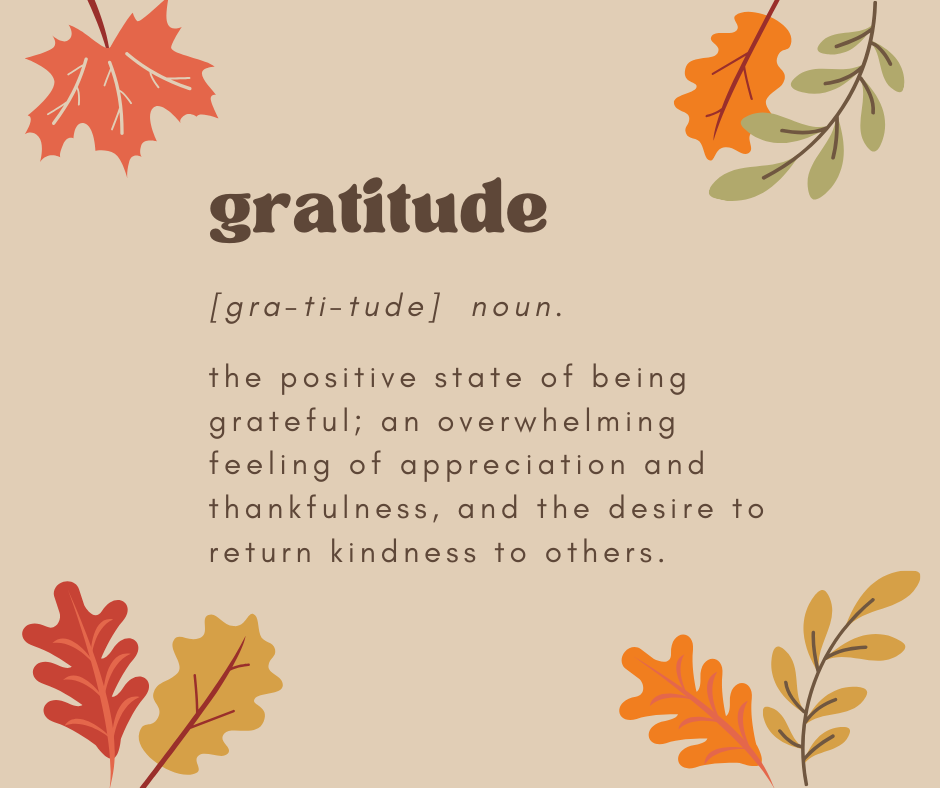The Science of Gratitude: How a Simple Human Reflex Reshapes Health, Mood, and Longevity
Gratitude is often framed as a polite gesture — a thank-you card, a nod of appreciation, a moment of noticing what’s good. But decades of research suggest it’s something far more biologically potent: a behavioral pattern that reorganizes the brain, steadies the stress response, strengthens relationships, and supports measurable improvements in long-term health.
Scientists across psychology, neuroscience, and medicine have spent years studying what happens when people consistently practice gratitude. The picture that emerges is clear: gratitude isn’t just an attitude. It’s a physiological event — one with far-reaching implications for mental health, cardiovascular function, sleep, inflammation, and even mortality risk.
An Older Human Reflex Than We Realize
Long before gratitude became a topic for wellness blogs or positive psychology labs, it served a practical purpose in the survival of early humans. Anthropologists describe it as a form of “social accounting,” a reflex that kept cooperation alive inside fragile, interdependent communities. The Greater Good Science Center notes that gratitude likely evolved as part of reciprocal altruism, the instinct to return help with help, strengthening alliances that supported safety, food access, and group resilience.
In this sense, gratitude wasn’t soft sentiment; it was strategy. Groups that reinforced generosity were more stable, and individuals who expressed thanks were more likely to remain embedded in a network that protected them. Our bodies still carry the trace of that reflex. When we feel grateful, our nervous system responds as if the world has become safer for a moment — and that sense of safety is the hinge upon which many physiological benefits swing.
How Gratitude Reorganizes the Brain
Modern neuroscience has supplied a clearer map of what happens behind that ancient reflex. Functional imaging studies show that when people experience gratitude, activity rises in two key brain regions: the medial prefrontal cortex (mPFC) and anterior cingulate cortex (ACC). These are areas deeply involved in emotional regulation, decision-making, empathy, and evaluating social interactions.
In practice, this means gratitude helps stop the mental looping that often fuels stress and worry. The mPFC acts as a top-down regulator, calming excessive reactivity from older brain structures that handle threat perception. It also forms part of the circuitry that tracks relationships — who supported us, what they did, and why it mattered. Gratitude sharpens this circuitry instead of dulling it.
Neurochemically, grateful reflection triggers increases in dopamine and serotonin, the neurotransmitters associated with reward, motivation, and mood steadiness. This isn’t metaphorical “warmth.” It’s a measurable neurochemical shift that improves emotional tone and nudges the brain toward more balanced interpretation of daily events.
The Stress Response: Where Gratitude’s Impact Becomes Tangible
One of the clearest biological consequences of gratitude shows up in the stress system. Chronic stress disrupts the body’s ability to respond to cortisol, the hormone that helps regulate inflammation and immune function. Over time, cells can become less sensitive to cortisol’s signals — a state called glucocorticoid resistance — which contributes to higher inflammation and greater vulnerability to disease.
Practices that evoke gratitude have been shown to decrease cortisol levels and soften the physiological stress response. The body interprets gratitude as a proxy for safety: supportive relationships, positive experiences, and personal resources. As stress hormones drop, systems responsible for repair — immune regulation, digestion, sleep — become more efficient.
This is why many people who practice gratitude—even in simple, consistent ways—report feeling more grounded in their daily lives. The body behaves as if it’s no longer bracing.
Gratitude and Mental Health: Shifting the Mind’s Default Settings
Psychological research repeatedly finds that people who adopt a grateful mindset experience lower anxiety, fewer depressive symptoms, and greater life satisfaction 5. These aren’t small effects. Meta-analyses of randomized controlled trials show that structured gratitude interventions — journaling, reflective writing, or expressing thanks — reliably move the needle on mood and emotional well-being.
Gratitude changes what the mind pays attention to
Humans naturally scan for threat more than support — a bias that once helped us survive. Gratitude interrupts this pattern by anchoring attention to resources rather than danger. Over time, this shifts the “set point” of perception, making positive events more salient and stressors less dominant.
Even small interventions, such as writing down three things that went right during the day, can decrease rumination and ease cognitive patterns that feed depressive thinking. Clinical reports from organizations like UCLA Health and the Anxiety and Depression Association of America highlight gratitude as a meaningful complement to traditional mental health care, particularly for managing daily stress and boosting emotional resilience.
The Cardiovascular and Immune Effects
Gratitude’s impact extends well beyond mood. Studies from the American Heart Association show that grateful individuals exhibit better cardiovascular markers, including healthier blood pressure patterns and reduced inflammatory signaling.
Cardiac patients who engaged in gratitude practices reported:
•better sleep
•less fatigue
•lower markers of inflammation
•a greater sense of daily well-being
Inflammation reduction is particularly important
Chronic inflammation contributes to heart disease, diabetes, autoimmune conditions, and long-term health decline. Gratitude’s ability to modulate immune function appears linked to both its cortisol-lowering effect and its capacity to shift the autonomic nervous system into a more restorative state.
Gratitude and Longevity
One of the most striking findings comes from large-scale health datasets. Harvard Medical School reports that individuals with higher levels of gratitude show lower mortality risk, even when adjusting for other health variables.
The mechanisms are twofold:
•Lower stress and inflammation reduce physiological wear-and-tear.
•Grateful individuals tend to engage in healthier behaviors: attending appointments, exercising, maintaining supportive relationships — all pathways strongly tied to lifespan.
It’s a reinforcing loop. Gratitude strengthens the systems that keep people alive, and the habits gratitude encourages continue to support long-term health.
Social Bonds: The Oldest Purpose of Gratitude Still Shapes Health Today
From an evolutionary standpoint, the most important function of gratitude has always been relational. Modern research supports this: gratitude increases prosocial behavior, motivates generosity, deepens trust, and strengthens relationship satisfaction. Researchers describe this as the “find, remind, and bind” effect — gratitude helps us find supportive people, reminds us who they are, and binds us more securely to them over time.
Social connection is one of the strongest predictors of health and longevity ever documented. Gratitude strengthens that network. In practical terms, gratitude is a lever that helps people remain tethered to the communities that help them survive difficulty, heal faster, and feel less alone.
How to Apply Gratitude in Daily Life in a Way That Actually Works
Many people hear about gratitude practices and picture forced positivity. But the research-backed approaches are much more grounded:
•Gratitude journaling works when it highlights specific moments, not generalities. (“I appreciated the way my coworker helped me solve that issue,” not “I’m grateful for my job.”)
•Expressed gratitude — telling someone what their action meant to you — produces stronger benefits for both people involved than silent reflection alone.
•Brief daily recall (“What support did I receive today?”) trains attention over time, gradually shifting perception.
These methods work because they engage attention, memory, and emotion simultaneously. They don’t deny difficulty; they counterbalance it, restoring the nervous system’s ability to regulate itself.
Why Gratitude Matters in a Wellness Journey
People walk into wellness centers seeking relief from stress, chronic pain, burnout, inflammation, disrupted sleep, or loss of motivation. The physiological systems affected by gratitude — stress hormones, immune signaling, cardiovascular function, emotional regulation — are the same systems that dictate how the body feels and functions day to day.
Gratitude isn’t a cure-all. But it is one of the few interventions that reaches across mental, physical, and relational domains with remarkable consistency. It changes how the brain interprets experience. It changes how the body responds to stress. It strengthens the social networks that keep people well. And it does all of this through small, repeatable actions that require no equipment, no medication, and no perfect circumstances.
In a health landscape dominated by prescriptions and protocols, gratitude stands out as something unusually human: a simple reflex that, when practiced deliberately, helps restore the systems that carry us through our lives.
Thanksgiving is a wonderful reminder to think about what makes us feel grateful. We have created a special gratitude exercise for you! This brief reflection is a chance to slow down and notice something good in your life today. Your answers help you hear your own voice more clearly — not by changing anything, but by understanding what already matters to you. When you’re done, you’ll receive a gentle mirror of what you shared, written in your tone and your words sent to your email. This is not only to understand what you are grateful for but why you feel that way. Enjoy friends!
Works Cited
[1] Allen, S. The Science of Gratitude. Greater Good Science Center, UC Berkeley.
[2] Fox, G. R., et al. “Neural correlates of gratitude.” Frontiers in Psychology.
[3] Nuvance Health. “What happens in your brain when you give and practice gratitude.”
[5] Sansone, R. A., & Sansone, L. A. “Gratitude and Well Being.” Psychiatry (Edgmont ).
[7] UCLA Health. “Health benefits of gratitude.”
[8] ADAA. “Gratitude — A Mental Health Game Changer.”
[9] American Heart Association. “Thankfulness: How Gratitude Can Help Your Health.”
[10] Baylor University. “How Gratitude Boosts Health, Resilience and Community Bonds.”
[13] University of Rochester Medical Center. “Can Gratitude Benefit Your Health?”



